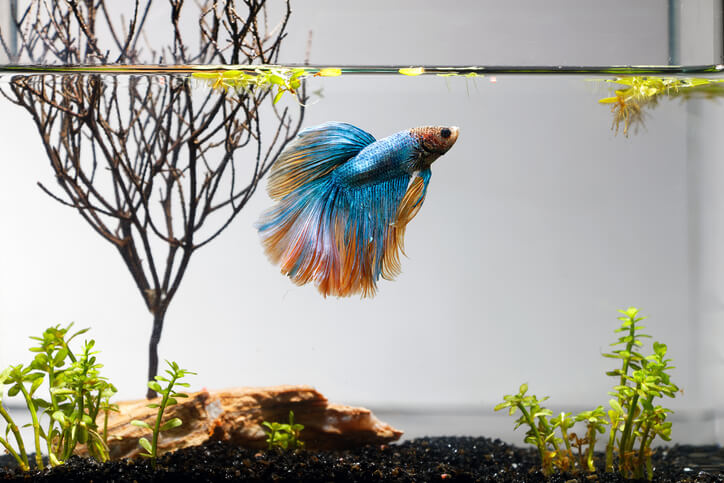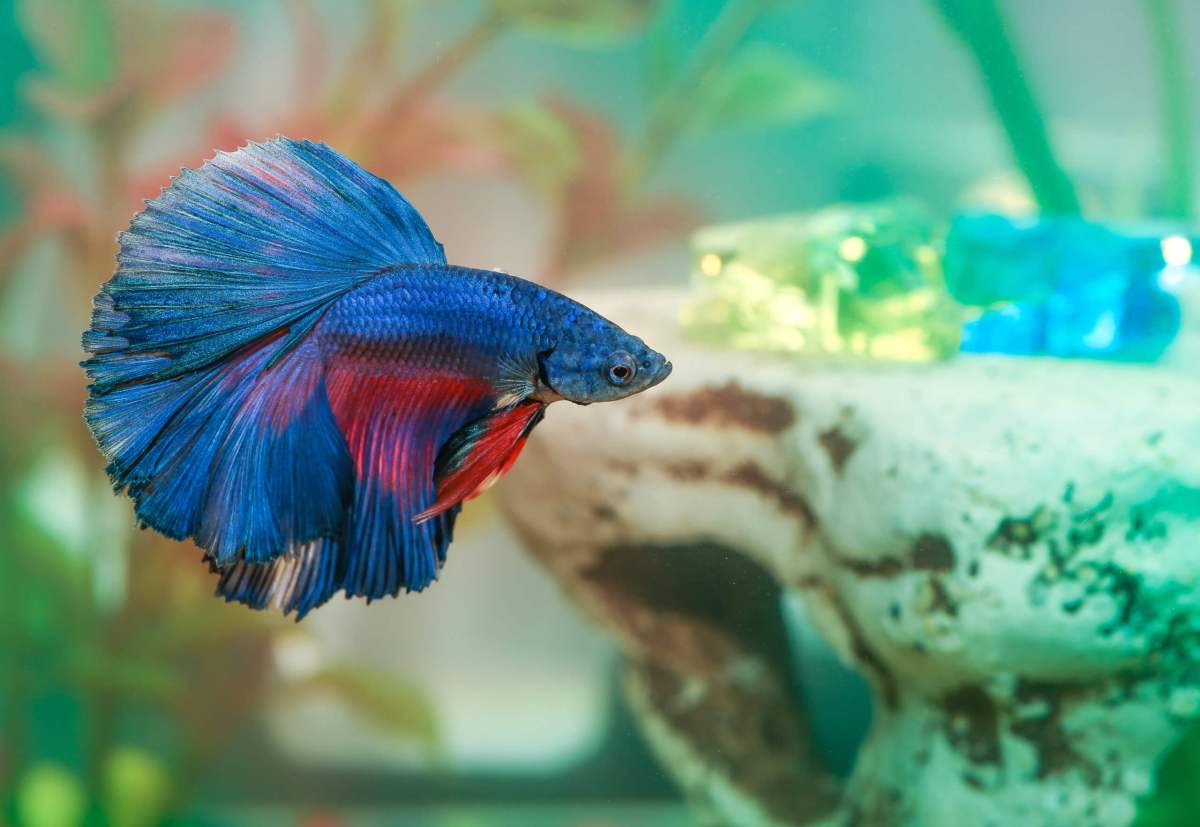If you’ve ever visited a pet store, you’ve probably noticed small jars or bowls allowing limited or no movement of the one fish inside each container. These are bettas, also known as “Siamese fighting fish” or “labyrinth fish,” and they have been horribly mistreated for decades.
Ashley Byrne has been with the international nonprofit organization People for the Ethical Treatment of Animals (PETA) for 15 years, working on a wide array of campaigns targeting pet stores for selling live animals such as bettas.
“The unfortunate life of a betta begins at the horrific breeding facilities where these fish are bred, improperly cared for, and often die from harsh conditions they are subjected to,” explains Byrne.
“Those that survive are transported across the globe in an unregulated and inhumane manner, only to arrive at a pet store where they will either die of neglect or languish and die in homes of even well-meaning people.”
In recent news, the lack of laws and protections for animals, including betta fish, has drawn attention to animal welfare groups as well as legislators and local representatives. Absent adequate legal defenses, abuse and neglect runs rampant, with limited, if any, repercussions for offenders.
Byrne explains, “Fish are often abused in ways that could warrant felony charges if dogs or cats were the victims, and there’s no scientific reason for the discrepancy in the lack of laws for fish since they have the same ability to feel pain and fear as a companion animal does.”
In fact, fish are highly intelligent creatures that suffer when they are deprived of their natural surroundings and their ability to behave the way they would if they were left to their own devices.”

How to Help Betta Fish
No animal deserves to live its life in a confined area lacking the resources it needs to thrive. If you or someone you know already has a betta as a pet, Byrne suggests providing a proper environment for your fish, including an appropriate-sized fish tank, complete with enrichment opportunities such as space to explore, caves, and plants.
“It’s true that fish can experience frustration and depression, but before haphazardly adding more fish to an existing tank, do your research and make sure the breeds can cohabitate successfully,” says Byrne.
Additionally, if you own a fish, you can no longer care for, contact your local animal rescue or shelter. They can assist with rehoming your pet. Do not release your betta back into any body of water.
One of the most effective ways people can help is by letting companies know that selling bettas and other small animals is an unacceptable practice.
Another way is to boycott any store that condones these actions. Instead, visit one of many local pet stores that sell supplies, food, leashes, toys, etc., that do not sell fish and/or live animals. And for more information about protecting betta, visit PETA’s website at peta.org/issues/animal-companion-issues/cruel-practices/betta-fish.
Related Story: Rescue One of These Sweet Pets from a Long Island Animal Shelter


































